Search Results
Showing results 401 to 420 of 482
Hexagon Hunt
Source Institutions
This activity gets learners looking at 6-sided shapes in nature, including the cells of a beehive, as well as other shapes.
Pósteres Sobre el Espacio y Matemáticas
Source Institutions
Exponga estos pósteres en el salón o déjelos donde los chicos los puedan explorar. Los chicos buscan las respuestas en línea, en libros de consulta, y en calendarios y almanaques.
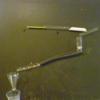
Magnetic Marble Run
Source Institutions
Learners explore magnetism and motion as they build a simple marble run. Learners test different arrangements of plastic and cardboard tubes, bottles, and cups on a magnetic board.
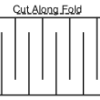
Great Openings: Slots, 35 Sense, and Hole In One
Source Institutions
These three short activities challenge groups to fit objects through paper and index cards: "Slots" presents the challenge for one learner to figure out which objects fit through a hole cut by another
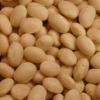
A Swell Activity with Beans
Source Institutions
In this combination chemistry and physics activity, learners explore water absorption in dried beans or peas and learn how this affects their physical properties.
Starburst® Graph
Source Institutions
In this activity, learners use Starburst® candy to sort, classify, compare, and graph. Learners grab a handful of one-inch candy squares, sort them by color, graph the candy, and discuss the results.
Pass or Roll!
Source Institutions
In this math activity, learners play a game in which every roll can earn you counters, but if you roll the wrong number (6), you have to put everything back.
Penny Estimation
Source Institutions
In this math activity, learners estimate how many pennies are in a jar by predicting and counting handfuls of pennies.
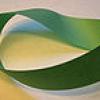
Magical Möbius
Source Institutions
In this tabletop activity (on pages 32-40), learners make Möbius strips -- 3D surfaces with only one side.
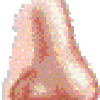
Expose Your Nose
Source Institutions
In this simple exploratory activity (1st activity on the page), blindfolded learners try to identify mystery items by smell.

Dr. Vet: Noses, Ears, Legs and Eyes
Source Institutions
In this activity, learners practice counting and multiplication as they figure out how many animal body parts they have to examine as "Dr. Vet."
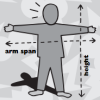
Are you a Square or a Rectangle?
Source Institutions
In this activity, learners investigate whether more people are squares or rectangles. People with similarly sized heights and arm spans are classified as squares.
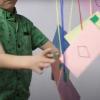
How to Learn Basic Shapes by Making a Shape Mobile
Source Institutions
In this activity, caregivers and young learners work together to craft and talk about shapes and relative positions of such shapes by creating a mobile.
Find Someone: Use Math to Learn About Friends
Source Institutions
Create a “Find Someone” list, with about 10 items, each containing a shape, number, or measurement. Can you find someone in the group with hair about 4 inches long? Someone wearing parallel lines?

Tessellations
Source Institutions
In this activity, learners will engineer a new shape and use it to create a new pattern with no wasted space.
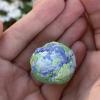
Seed Orbs
Source Institutions
In this activity, learners will make seed orbs to grow new trees and plants. Learners will explore ecology and life cycles as well as stewardship through this activity.
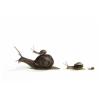
Small Snails, Enormous Elephants
Source Institutions
This activity (located on page 2 of PDF) introduces learners to the real size of animals using nonstandard measurement.
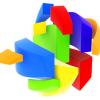
Crazy Shapes
Source Institutions
In this activity, learners cut a shape into two equal sized pieces and use their knowledge of geometry and space to prove that the two parts are equal.
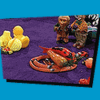
Guess My Rule
Source Institutions
In this activity, learners play a guessing game to explore classification.
Needlework Designs
Source Institutions
In this math activity, learners create symmetrical designs for paper models of special blouses known as huipiles.
